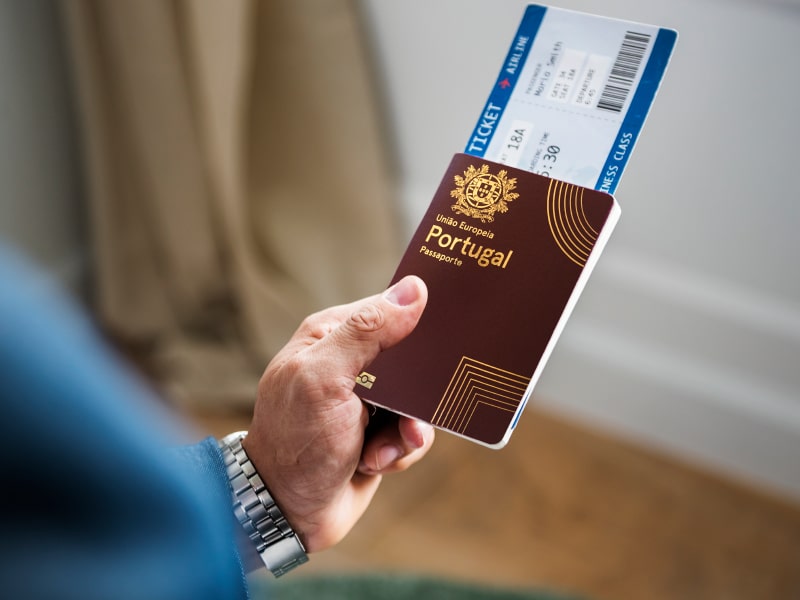Portugal’s Golden Visa will now only be granted to overseas entrepreneurs who invest by setting up a business in the country.
It will be the only exception after the Government announced in February that it would end the Authorisation for Residency by Investment programme (ARI) after mounting pressure from the European Parliament and the discovery that up to 40% of investment could have come from countries at risk of money laundering.
Almost half of Golden Visas issued since 2012 came from applicants from China which is included on the ‘red list’ of 30 countries at risk and which also include Pakistan, Vietnam, and Cambodia according to the index Basel AML.
Now, in order to pass into law the Government will have to publish a diploma. The Prime Minister, António Costa explained that applications that are already with the borders and immigration service SEF and are being studied will be “officially handled under the ARI regime for immigrant entrepreneurs providing the applications “meet the respective requirements for an entrepreneurial project underway”.
The same will apply for requests to renew Golden Visas that has to be done every two years.
“So, processes that are pendent will be analysed according to the general law and with a certificate from one or more of the following government agencies: the overseas investment agency AICEP, Portugal’s investment bank Banco de Fomento, the agency for competitiveness and innovation IAPMEI, the National Innovation Agency, and the Ministry of Culture”, said António Costa.
The Government’s intention to terminate the Golden Visas was announced on February 16 and during a press conference on Thursday the Prime Minister said that there was “no justification for a special regime for Golden Visas” since 89% of this investment had purely come from investment in real estate”.
In the run-up to signing the diploma ending the Golden Visa programme there has been growing opposition to the move from all sectors of the business community.
A public petition has now been launched online for the “Defence of the Image and Reputation of Portugal in the eyes of International Investors’ which is being sent to the President of the Republic, Marcelo Rebelo de Sousa.
The petition reads: “Ten years ago the Government had to ask for outside international help to secure financing for Portugal and the Portuguese economy. These were difficult years for all Portuguese with austerity, unemployment and less disposable income.
In this context, and on the initiative of the Government, an overseas investment mechanism was introduced to the Law of Foreigners in 2012 – in this case investment from nationals from countries outside of the European Union, permitting these, providing they met certain conditions, could come as holders of the authorisations for residency for investment in Portugal which would become known as ‘Golden Visas’.
Over the years this mechanism was held up as one of the banners of economic diplomacy pursued by the government, by Portuguese embassies overseas and government overseas investment attraction agencies.
This authorisation for residency rapidly fired the interest of international investors and business angels and helped Portugal to be viewed as a stable and safe country at a political, economic and social level.”
The petition goes on to state that Portugal’s international reputation is being “undermined” by terminating the programme whose cancellation is “unjustified and discriminatory”.
It says that overseas applicants and Golden Visa holders are feeling “defrauded by the Portuguese State” and that its retroactive character (back dated to the date of the announcement on February 16) is “unconstitutional”.
The petition is calling for the cancellation of any measures that would affect the stability of investments in Portugal or change the assumptions under which these ‘Golden Visas” were awarded and which counteract the legally imposed obligation to maintain their investment for a minimum of five years.
It calls for a legal transition that will protect all investments underway and not to affect an activity that always sought to adapt to adapt to demands that were imposed at any given time.
Additionally, it calls for the adoption of measures that will not contribute to a massive recourse to the law courts to demand fair compensation from the Portuguese State for the damages caused by the application of unconstitutional legislation.
Silvio Santos, a Madeiran entrepreneur who has two international schools — one on the island snd another on the mainland near Oeiras – signed a petition stating: “With the extreme importance that Portugal has for attracting overseas investment to the capital and to Portuguese companies that lack own capital, it makes no sense whatsoever to eliminate Golden Visa investment in Venture Capital Funds, or for investment in property. The Government is throwing the baby out with the bathwater. For goodness sake!!!”
However, António Costa argues that only 22 of the 11,758 authorisations for residency granted over 11 years created jobs, which is why the prime minister says that the granting of these visas “should only continue under the terms of the general law (and not a specific legal regime) because “nothing justifies such special treatment”.

